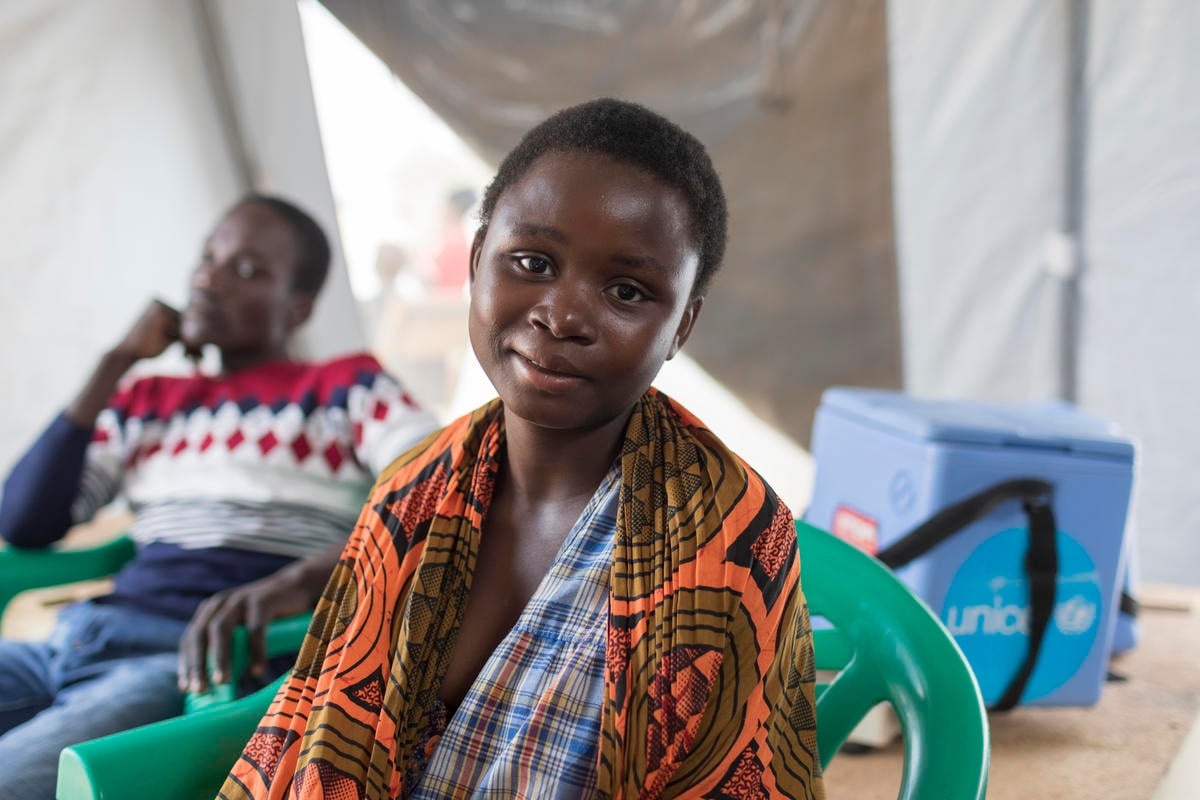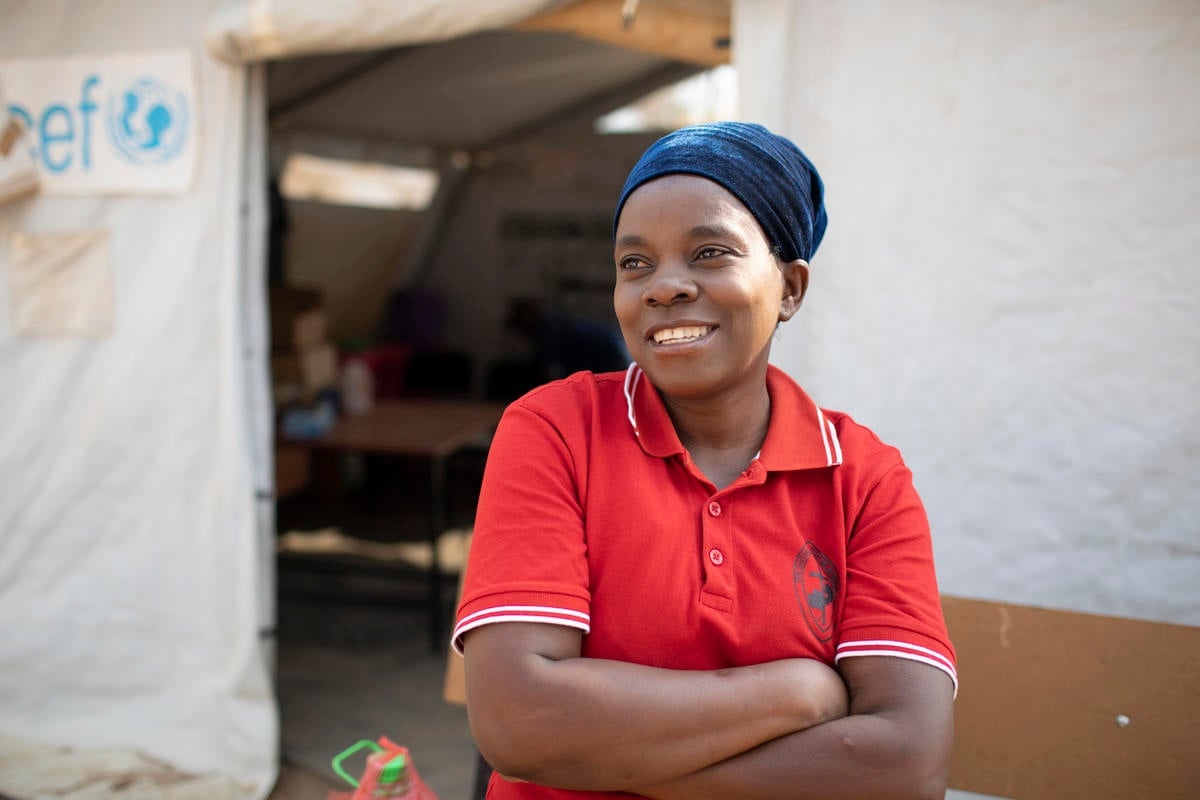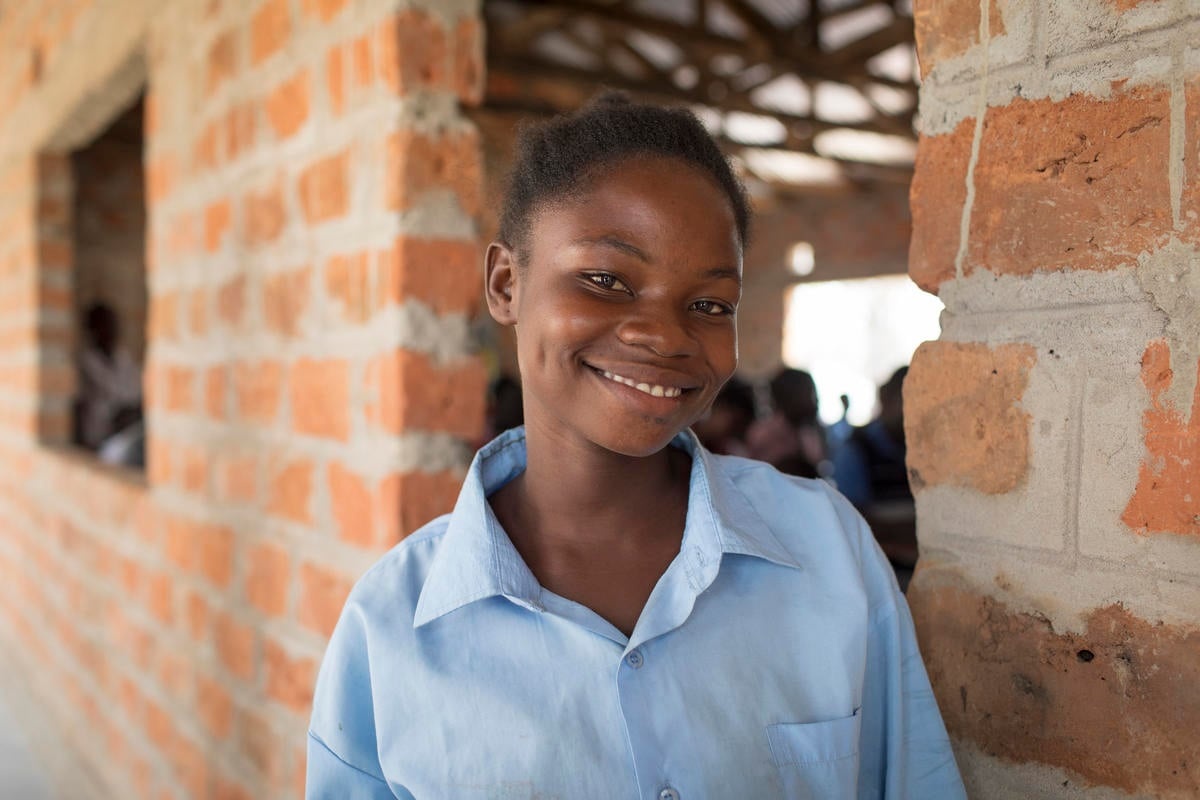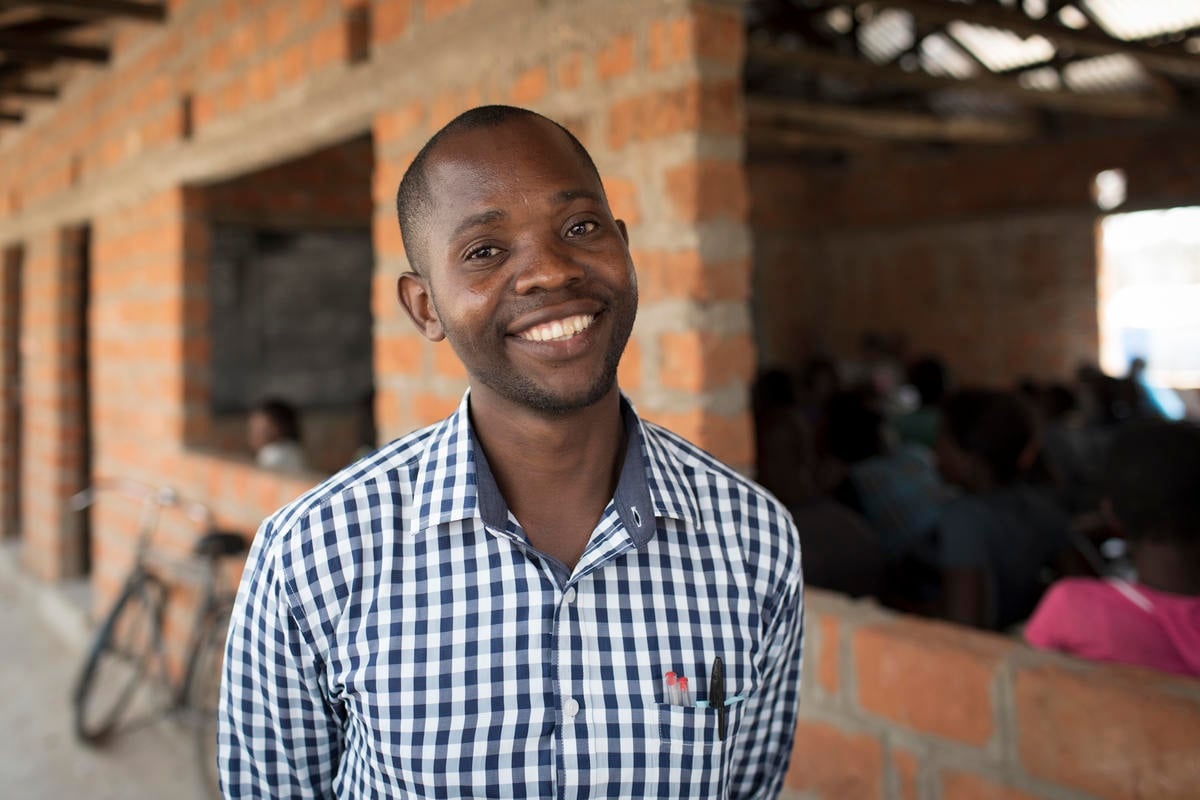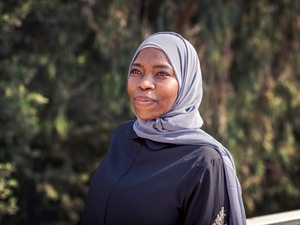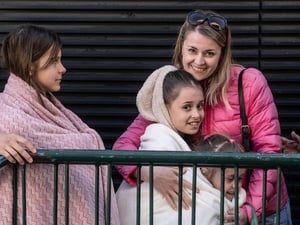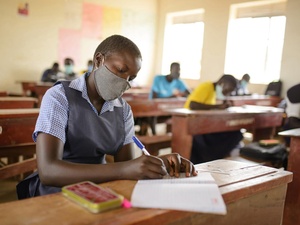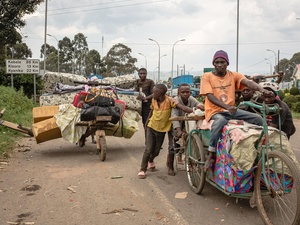New clinic and schools save lives and build futures in Zambia
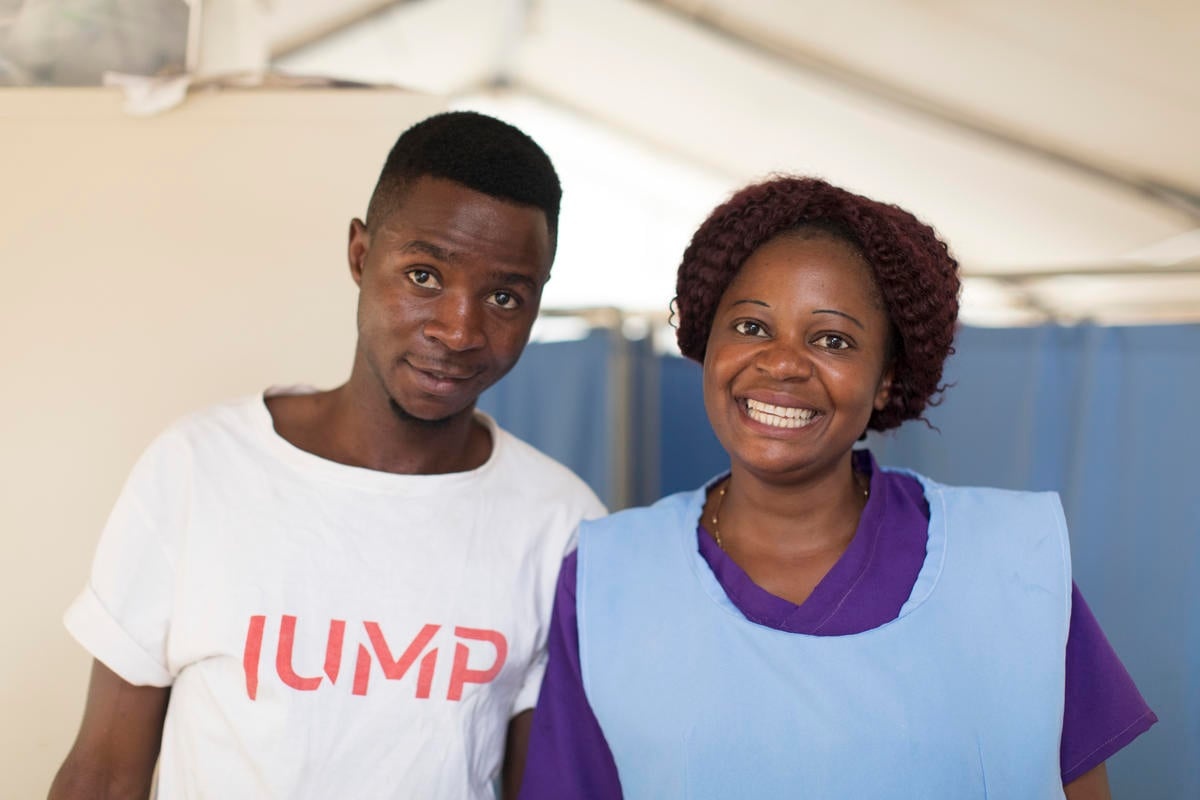
Patricia Sampule (right), 34, is a Zambian nurse working at the clinic in Mantapala Settlement.
Nurse Patricia Sampule smiles as she carefully checks the tiny baby. At just 20 minutes old, the little girl doesn’t yet have a name, but she and her mother, both Congolese refugees, are doing well.
Until recently, they would have had to travel over 30 kilometres to see a doctor. Now, this is the fourteenth baby delivered this week at the clinic in Mantapala Settlement, in north-western Zambia.
“We’re saving lives with this institution,” says Patricia, 34, who works full time at the facility that was set up to serve over 13,000 Congolese refugees fleeing mounting violence in the Democratic Republic of the Congo. “It’s made a big difference.”
Built around existing farmland, Mantapala Settlement is home to around 5,000 local Zambians who can also access the clinic. Before it opened in February, many locals would have to set out at dawn for an eight-hour odyssey on foot to see a doctor. For pregnant women, or the seriously ill, surviving the trek meant the difference between life and death.
“We’re saving lives with this institution."
“I’m glad the clinic is here now,” says Agnes Manda, 18, one of a group of Zambian pregnant women waiting for a check-up. “We used to only go to the doctor if we were seriously ill. Often people wouldn’t believe you were going to make it. But now it’s so near. If we need to we can just walk here.”
The clinic, staffed and run by the Zambian local health authority, is equipped to vaccinate residents and treat life-threatening diseases endemic to the area, such as malaria. An ambulance is on call 24 hours a day to take the most serious cases to hospital. A more permanent building is under construction.
“We’ve seen and treated thousands of people,” says general nurse Judith Mwansa, 50. “If it wasn’t for the services we provide, there would be many more deaths both among the refugees and the locals.”
A short walk away from the clinic, aspiring doctor Joyce Kanyembo is studying English grammar at the settlement’s school. Most of her classmates are Congolese refugees, but Joyce is one of a growing number of local Zambians who are also attending.
In future, the school, which was established by a range of international partners including Save the Children and UNICEF, will be run by the government.
“It’s easier to come to this school because it’s closer to my home,” says Joyce, 20, who attended a community school in a nearby village before the school opened.
“When I finish school, I want to be a doctor,” adds the keen student, who is fourth from the top of her class. “It’s my hobby to help people and look after them.”
Headteacher Christoph Mukupa is proud of the difference his school is making to local pupils like Joyce and hopes to boost the Zambian student quota to 20 per cent. For him, the benefits of mixed classes are huge, with Zambian students helping to integrate their Congolese classmates.
“When I finish school, I want to be a doctor."
“It’s a privilege and an honour to have this school in place,” says Christoph. “We are learning languages, norms and cultures from the Congolese and they from us.”
Mantapala Settlement, which was designed to encourage this kind of exchange between locals and refugees, forms part of a wider response to refugee movements known as the Comprehensive Refugee Response Framework, or CRRF.
“Mantapala Settlement gives refugees and hosts the chance to live together in a very cohesive way,” explains George Ormondi, a livelihoods officer for UNHCR, the UN Refugee Agency. “They access the schools, clinic and markets together and live as one community.”
Last year, the Zambian government passed legislation that ensured both refugees and host communities would benefit from services in settlements like Mantapala.
“In the past the local community were looking on at what was given to refugees and that was bringing a bit of apprehension,” says Abdon Mawere, Zambian Commissioner for Refugees. “We thought it was important our refugee programs also help the host community.”
“By ensuring refugees and hosts benefit from the same services, the government is working hand in hand with UNHCR to promote integration and social inclusion of refugees,” adds Pierrine Aylara, UNHCR's representative to Zambia.
For those who no longer have to walk eight hours to see a doctor, the benefits of hosting refugees in their community are clear.
“I’m happy that the refugees are here,” says Zambian farmer Kelvin Mwansa, 28, who in early September rushed his six-month-old daughter to the Mantapala Settlement clinic after she contracted malaria. The nurses saved her life.
“Now there is a school, a clinic and jobs,” he adds. “Most people see the benefit of the services here because they are not only for refugees, they are for everyone.”



